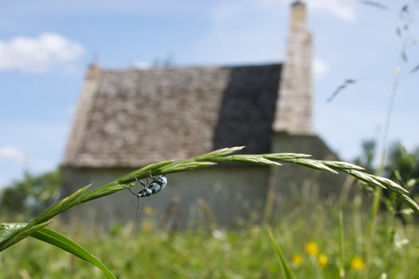
Our Wildlife
Wildlife
There are broadly two schools of thought on farms and wildlife, land sparing and land sharing. Land sparing is about intensifying food production on one area, and then sparing land just for wildlife some where else. That could be on the farm, or in another country.
Land sharing is having farming and a broad range of wildlife both thriving right on the same patch. I am a fan of the sharing approach, as actually I believe the world doesn't have the time or space for the other approach. Land sharing is not a fixed recipie, this is a continuum from very wildlife focused farming like rewinding and grazing nature reserves all the way through to commercially focused organic farming.
Within the areas we farm we have lots of different habitats - from hedges, rivers, pasture, meadows. However within these there is a range of management from not much intervention to quite a bit. This means not all hedges or pastures are as rich as others. Recording these difference in terms of bird, plant and insect species is essential to understand how farming practises help or hinder different species. This recording is a monumental job, but we chip away at it ourselves but also with the help of experts, and are keen to take advantage of Phd students, surveyors and others to build up data sets. We now have good bird and plant records (with over 100 species of bird recorded)- insects should really be the next focus but thats a big job!
North Meadow
For the last 4 years we have been one of the farms that make hay on North Meadow. This is a large flood plain traditional hay meadow on the edge of Cricklade that is designated a Site of Special Scientific Interest and a National Nature Reserve. Its packed full of very interesting plants and has 80% of the Snakehead fritillaries in the country in the one field. We work with the owners Natural England to continue the haymaking, which underpins the biodiversity on the site.
We also work with NE on some outlying sites near North Meadow where haymaking stopped and where we are trying to restore the bio diversity. This is working really well and shows a direct link with demand for 100% grass fed beef and biodiversity improvements.










